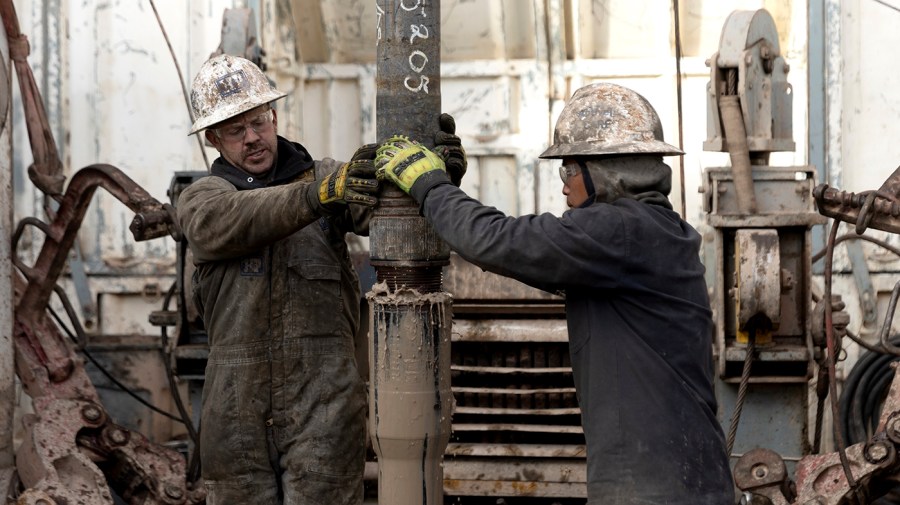AUSTIN, Texas — Even as President Trump slashes support for wind and solar energy, another renewable energy source is finding unexpected favor under his second administration.
In early February, newly confirmed Secretary of Energy Chris Wright named geothermal energy, which uses underground heat to generate clean heat and electricity, as one of the prime areas for department research and development.
And geothermal advocates see Trump’s own pledges to “drill, baby, drill” — even if primarily intended to benefit the oil and gas industry — as offering both rhetorical and practical support for the nascent enhanced geothermal industry, which uses technologies like fracking to extract the heat from the earth.
The sector is still “10 to 15 years” behind where wind and solar are, and raising capital is tough, Cindy Taff, chief executive of geothermal company Sage Geosystems, told The Hill.
But now, as momentum grows and money begins to pour in, she said, “it’s going to be the decade of geothermal.”
With bipartisan political support behind its efforts and skyrocketing energy demand from data centers bolstering the potential market for its offerings, the geothermal industry is getting excited.
Geothermal proponents interviewed by The Hill argue it could soon offer heating, cooling and electric power in a form that combines the cheap, pollution-free aspects of wind and solar power combined with the on-demand security of fossil fuels.
Those advantages, they argue, make the industry particularly well placed to help meet the demand of the new data centers, which require massive quantities of electricity to run and cool off their servers: A November McKinsey study found that data center electricity demand would more than quadruple by the end of the decade — requiring additional electricity about equal to all the power the state of Texas used in 2024.
For one thing, they noted, geothermal energy is nearly as plentiful as solar. Last year, the International Energy Agency (IEA) found that there is enough accessible heat within the Earth to increase global electricity demand by a factor of 140.
It can also be produced on a more consistent basis. Geothermal plants on average ran 75 percent of the time in 2023, according to the IEA — far more than solar.
Unlike fossil fuels, the main contributor to global emissions, geothermal energy also offers on-demand heating, cooling and electricity without heating the planet or releasing toxins into the air.
The Trump administration’s embrace of geothermal is a rare silver lining in an era of record heat, Jamie Beard of the geothermal advocacy group Project InnerSpace argued. If the climate movement “wants to hand-wring about what we’ve lost” as Trump turns against the Biden administration’s climate goals, she said, then geothermal’s acceptance among Republicans “is something you can grab onto.”
Over the short term, Beard foresaw a rough ride for the geothermal industry: It could lose access to Inflation Reduction Act tax credits if Republican efforts to cut them — in whole or in part — go through. And most federal geothermal programs are housed in the Department of Energy’s Office of Energy Efficiency and Renewable Energy, a potential target of a staunchly pro-fossil fuel administration.
But over the medium term, Beard said she was “cautiously optimistic” that “geothermal is going to shine under Trump” — an attitude widely shared by geothermal entrepreneurs.
Many were tentatively excited about Trump’s pick of Wright, pointing to his deep experience — as head of oilfield services company Liberty Energy — with oil and gas drilling, which has significant overlap with geothermal technology. While generally focused on oil and gas, Wright’s company, Liberty Energy, invested $10 million in Houston-based geothermal startup Fervo Energy.
Wright “wants to unleash base load power, and we think geothermal really fits the bill,” Charlotte “Coco” Wallace, who leads policy and business development for geothermal startup Quaise, told The Hill.
Others saw hope in Trump’s announcement of a new “National Energy Council,” to be headed by Interior Secretary Doug Burgum, which would encircle the whole energy supply chain — from permitting to production to distribution — under one hub.

